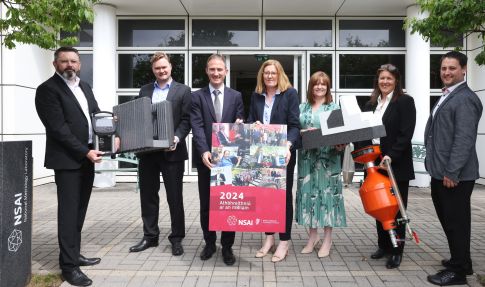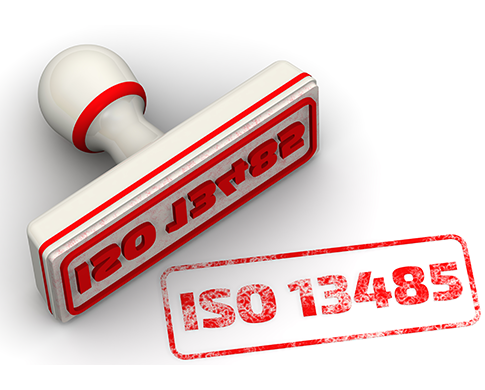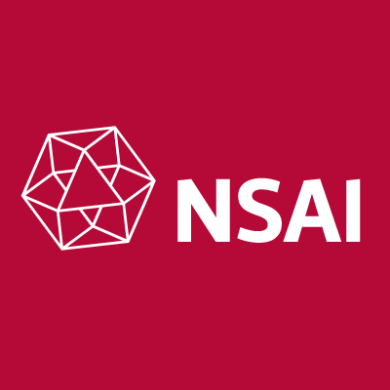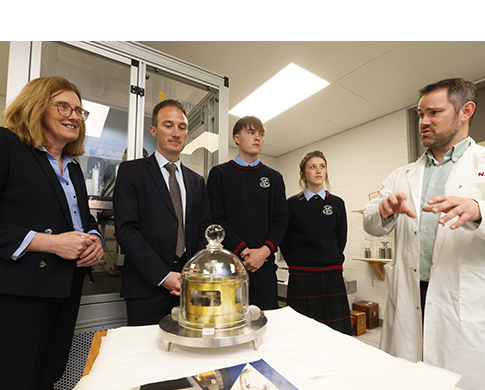From housing to cybersecurity, NSAI continues to support Irish business through standards and certification
Find Out More
National Standards Authority of Ireland New Standards Shop
Buy Irish Standards Online
At a national policy level, Innovation 2020, Enterprise 2025 and IMPACT 2030 emphasise the importance of standards to the RDI community in supporting an innovative Irish ecosystem. Standards facilitate the introduction of innovative products by providing interoperability between the new and existing products, services and processes. Furthermore, standards bridge the skills gap and aid in knowledge transfer. This is recognised at a European level through the emphasis placed on standardisation as a vital part of EU RD&I funding mechanisms.
Standards help build consumers trust and confidence in new technologies, thereby enabling the accelerated mass-market diffusion and adoption of related products and services. In effect, standards help bridge the innovation gap between research and global markets by enabling efficient and effective knowledge and technology transfer, resulting in maximum socio-economic and environmental benefits and impact. The earlier a company or RDI centre engages in the standards development process – integrated within their overall innovation process, the sooner they can bring their standards-informed innovation to competitive global markets, resulting in greater rewards.
During the standards development process, new technical insights are gained as well as time-to-market advantage. Irish companies can add their own unique product or service innovations on top of the foundational standards. Hence, standardization leaders and fast-followers are fully prepared to successfully launch their standards-aligned products and services across international markets to meet the needs of consumers and society.
The New European Standardisation Strategy recognises the need for enhanced engagement in standards development by the RDI community, and to test the relevance of their results for standardisation. Through EU initiatives such as the recently launched "Standardisation Booster’, there are significant opportunities for the Irish RDI community and associated Startups and SMEs, to aid in the co-creation process of standardization, supporting open innovation and cross-industry research development and industry activities.
The Commission has recognised the importance of standards through the publication of a Recommendation on a Code of practice on Standardisation, this code of practice proposes a set of recommendations on how to best identify opportunities and techniques to increase the uptake of R&I results through standardisation. Furthermore it supports and lays the foundations of the guiding principles for knowledge valorisation.
For further information on the standardisation process please watch the HS Booster Presentation below, for training material developed for the HS booster EU project, which facilitates and streamlines the dialogue between Horizon 2020 and Horizon Europe Research & Innovation projects with the Standardisation landscape and its main actors, namely corresponding Standards Developing Organisations (SDOs) to increase the European impact on (international) Standardisation and strengthen the European competitiveness.
Contact NSAI Standards Business Development, Research & Innovation

Find Out More


Key findings from NSAI national user survey on the need for changes ISO 13485:2016 – Medical Devices – Quality Management Systems – Requirements for regulatory purposes is an important standard for the medical device industry. The standard outlines the requirements for a Quality Management System (QMS) that...
Find Out More
NSAI recognises the urgency of the review of I.S. 465 and continues to treat this as top priority. This work is consistently driven by a desire to provide certainty and assurance for those utilising the standard in their work and NSAI’s mandate as a public body to deliver...
Find Out More
To mark UNESCO World Metrology Day 2025, the National Standards Authority of Ireland (NSAI) hosted a commemorative event at the National Metrology Laboratory in Glasnevin on May 20th, 2025. The celebration, which was jointly organised by the Legal Metrology Service and National Metrology Laboratory of NSAI, included a visit from Minister...
Find Out More